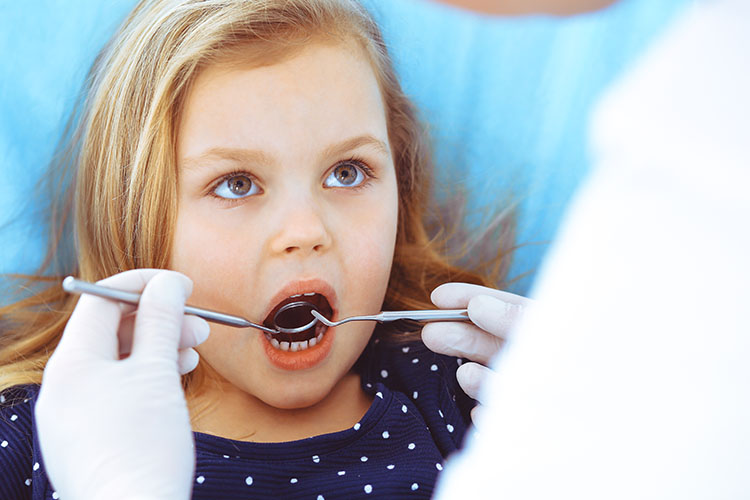
As a parent, you want to make sure your child is happy and healthy. A healthy lifestyle also means creating good habits for oral and dental health to help prevent tooth decay. When you know how cavities form, as well as what causes cavities in babies, toddlers, and big kids, you can take a hands-on approach and prevent cavities from developing. Since tooth decay can happen to any exposed tooth, even just barely poking through the gums, babies as young as six months can get cavities. It is shocking but true.
How do Cavities Form?
When you eat sugary foods, processed carbs, or any other food that turns to sugar once consumed, naturally occurring bacteria in your mouth feed on these sugars. They produce bacteria clusters protected by a layer of plaque and produce highly acidic waste on the teeth. This acid then destroys tooth enamel, causing cavities.
Cavity formation is not an instant or guaranteed process. Aside from the foods that fuel bacteria growth, several other factors must align before a cavity can develop. The oral microbiome (the balance of good-to-bad bacteria in the mouth), the mouth’s pH, and the saliva’s quality contribute to cavities production.
However, when the microbiome is balanced, and you are eating the proper foods, taking the right supplements, and avoiding or limiting acidic foods and drinks, you can prevent new cavities from ever forming. You can also naturally reverse smaller, existing cavities—no fillings needed.
But if harmful bacteria have the ideal environment to flourish, cavities are essentially a foregone conclusion. The acids excreted by the bacteria will eat away at your teeth and, over time, expose nerves in the teeth, causing the pain and sensitivity to hot and cold that we often associate with cavities. This process applies to kids as well, so if you want to keep your child’s smile healthy and bright, it is essential to be aware of the conditions that cause cavities and do everything possible to prevent them.
Here are a few common causes of tooth decay in babies and toddlers:
Not brushing or wiping baby teeth
As soon as your baby’s first teeth appear, you should be keeping them clean to prevent plaque formation, which can lead to decay. Before your child has a full set of teeth that require a toothbrush, you can wipe them with a wet washcloth. You want to wipe teeth after every feeding for babies, as formula and even breastmilk tend to have high sugar content.
Giving too many sugary drinks
As I mentioned, even breastmilk is considered sugary—and so is any other drink that’s not water. When a baby is young and relying on breastmilk or formula for sustenance, it is impossible to avoid these drinks altogether. You need to be vigilant about wiping the baby’s teeth after feedings. But once the child is old enough to eat solid foods, limiting or eliminating sugary drinks, including juice. Along with sugary and starchy foods, these drinks are the preferred diet of erosion-causing bacteria.
Skipping the dentist
Unfortunately, when you wait for your child to have a full set of teeth to visit the dentist, it can delay the development of good dental habits and puts them at risk of more cavities. Early detection of any plaque buildup is essential. The longer plaque goes unnoticed, the higher the likelihood it will lead to decay. Also, waiting too long before your child’s first dental visit—or waiting too long between subsequent appointments—can trigger dental anxiety at their next visit.
Putting children to bed with a bottle
Giving your child a bottle or sippy cup at night may help soothe them to sleep, but it can cause significant damage to their teeth. Bottles and sippy cups deposit sugars from formula or juice directly onto the teeth. With prolonged contact while baby sleep, it is the perfect breeding ground for bacteria and baby bottle tooth decay. If you give your child a bottle or cup before bed, be sure to take away and clean their teeth before they fall asleep.
